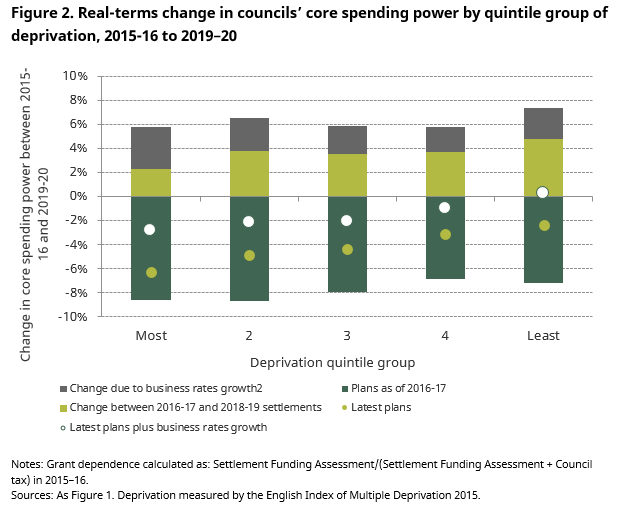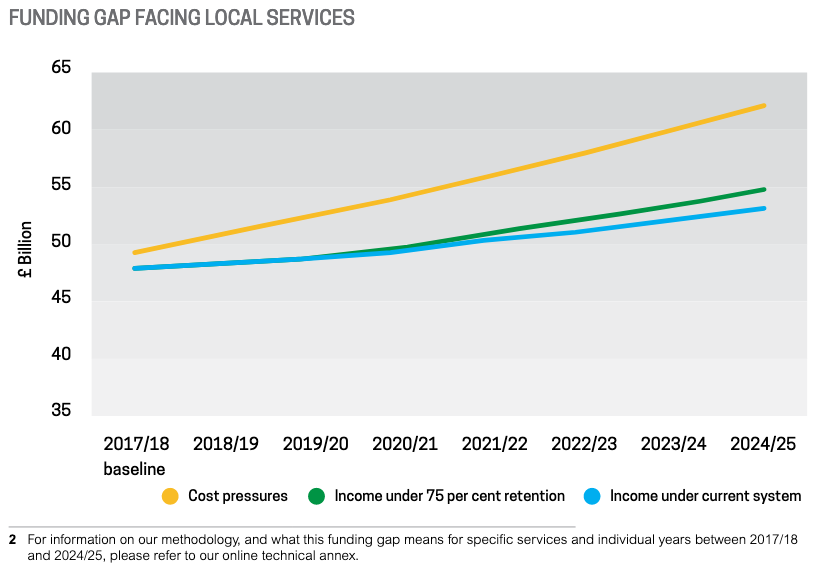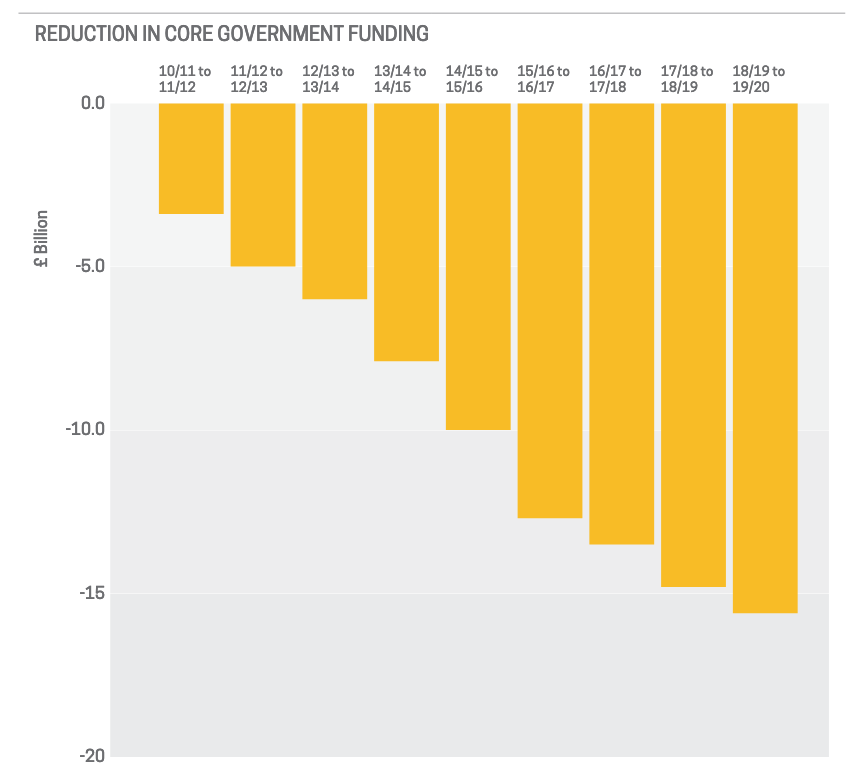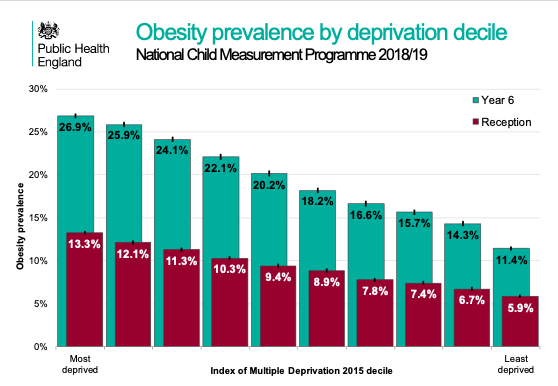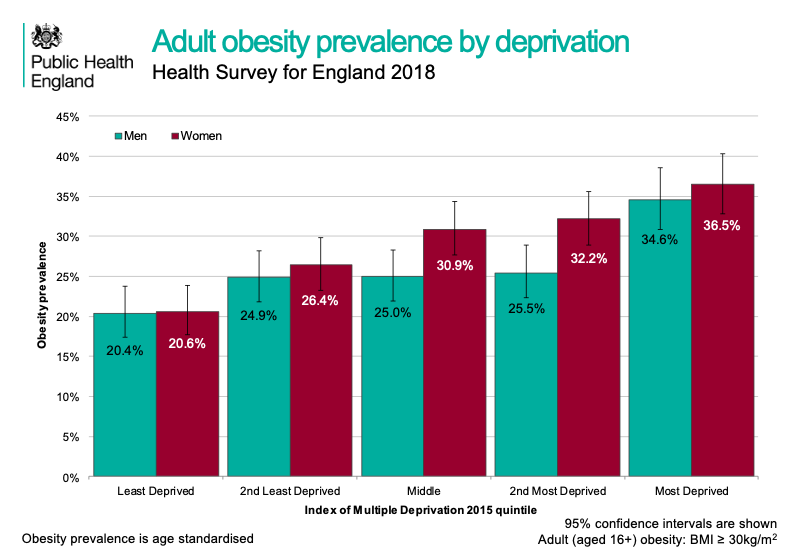Today, gov has announced their new obesity strategy with some headline grabbing policies. https://www.gov.uk/government/news/new-obesity-strategy-unveiled-as-country-urged-to-lose-weight-to-beat-coronavirus-covid-19-and-protect-the-nhs
Over the weekend we heard some of the policies aimed at high risk groups – expanding access to wt mgmt services, self-referral to the diabetes prevention programme, & nonsense around GPs prescribing bikes (even beyond medicalising cycling, the bikes aren't the problem here...)
This morning we’ve had the big-ticket items:
-9pm watershed for advertising junk food on TV and online,
-ending price promotions and location-based promotions of unhealthy food in shops,
-calorie labelling in restaurants
-a new PHE-led health promotion campaign.
-9pm watershed for advertising junk food on TV and online,
-ending price promotions and location-based promotions of unhealthy food in shops,
-calorie labelling in restaurants
-a new PHE-led health promotion campaign.
These legislative pop level policies – ones that affect everyone equally, are the ones that are likely to have the largest and most equitable impact. https://journals.plos.org/plosmedicine/article?id=10.1371/journal.pmed.1001990
But as @harryrutter set out in his fantastic thread yesterday, today’s policies are just one small part of what’s needed. https://twitter.com/harryrutter/status/1287380340672204805?s=20
Obesity is the classic systems problem. Masses of drivers & interactions, no one policy that’s going to solve the crisis.
+ the complexity of a systems approach can help policy development. Offering more opportunities for action, areas for research, spotting unintended outcomes.
+ the complexity of a systems approach can help policy development. Offering more opportunities for action, areas for research, spotting unintended outcomes.
So whilst today's policies are part of the solution...(side note, they've all been in prev obesity strategies & not implemented. Consultation on calorie labelling ended 7/12/18, banning price promotions finished 6/4/19, 9pm watershed on 10/6/19 – then results unpublished til now)
...there’s a whole host of evidence-based population level policy that will be needed if the gov is really serious about tackling this problem.
There’s nothing on green space, policies to promote walking and cycling, or to reduce dependency on cars.
There’s nothing on extending the Soft Drinks Industry Levy to at least include sugar sweetened milk drinks, increasing licensing powers for local gov around unhealthy food outlets near schools or in town centres.
And finally and most importantly, there’s nothing to address the true root causes of obesity and inequalities.
Obesity rates among kids are double in the most deprived decile than the least, there are similar trends among adults. The same could be said for almost all chronic disease, as well as for income, opportunity, healthy life expectancy etc. Policy must reflect this reality.
If @GOVUK is serious about levelling up opportunity across UK, it has to mean more than infrastructure, it has to be about giving everyone an equal opportunity to be healthy. As @jobibby & @louisemmarshall have written, to see health as an asset. https://www.health.org.uk/publications/the-nations-health-as-an-asset
Obesity policy therefore needs to be one part of a wider cross-government health and inequalities strategy, including tackling poverty, unemployment, housing, pollution, climate, green space, commercial drivers, and more. Anything more piecemeal won’t be enough.
Here's our @HealthFdn response. Though parliament’s in recess we must at the very least hold their feet to the fire on today’s announcements (note – gov announced banning energy drinks sales to <16s in last yr’s green paper but it’s still not in statute) https://www.health.org.uk/news-and-comment/news/new-government-obesity-strategy-likely-to-be-missed-opportunity
And moving forward, this is just one small step in gov action that's required. As the UK continues to plan its COVID recovery, we need to continue to push for strategies that tackle obesity, health, and inequalities across all of government.

 Read on Twitter
Read on Twitter